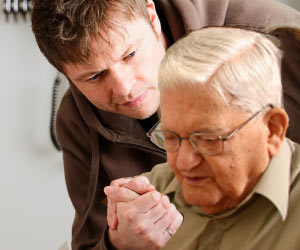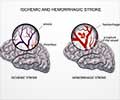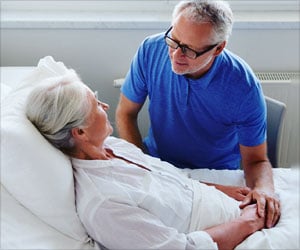
Chronic loneliness and the risk of incident stroke in middle and late adulthood: a longitudinal cohort study of U.S. older adults
Go to source). Boston, MA—A new study conducted by Harvard T.H. Chan School of Public Health reveals that chronic loneliness may considerably elevate the risk of stroke in older adults. Our findings underscore the importance of this issue," stated lead author Yenee Soh, a research associate in the Department of Social and Behavioral Sciences. "Our study suggests that chronic loneliness may significantly contribute to stroke incidence, which is already one of the major causes of long-term disability and death globally."
‘Chronic loneliness increases stroke risk by 56% in older adults, revealing its profound long-term health impact. #mentalhealth #strokeawareness #medindia’
Tweet it Now
While earlier studies have connected loneliness with an increased risk of cardiovascular diseases, few have specifically investigated its impact on stroke risk. This study is among the first to explore the relationship between changes in loneliness and stroke risk over time.Using 2006-2018 data from the Health and Retirement Study (HRS), the researchers assessed the association between changes in loneliness and stroke incidence over time. During 2006-2008, 12,161 participants—all adults ages 50 and above who never had a stroke—responded to questions on the Revised UCLA Loneliness Scale, from which the researchers created summary loneliness scores. Four years later (2010-2012), 8,936 participants who remained in the study responded to the same questions again. The researchers then placed the participants into one of four groups according to their loneliness scores across the two time points: “consistently low” (those who scored low on the loneliness scale at both baseline and follow-up); “remitting” (those who scored high at baseline and low at follow-up); “recent onset” (those who scored low at baseline and high at follow-up); and “consistently high” (those who scored high at both baseline and follow-up).
Among the participants whose loneliness was measured at baseline only, 1,237 strokes occurred during the follow-up period (2006-2018). Among the participants who provided two assessments of loneliness over time, 601 strokes occurred during the follow-up period (2010-2018). The researchers analyzed each group’s risk of stroke over the follow-up period in the context of their experiences with loneliness, controlling for other health and behavioral risk factors. These included social isolation and depressive symptoms, which are closely related but distinct from loneliness.
The findings showed a link between loneliness and higher risk of stroke and found that chronic loneliness heightened risk the most. When loneliness was assessed at baseline only, the participants considered lonely had a 25% higher risk of stroke than those not considered lonely. Among the participants who reported loneliness at two time points, those in the “consistently high” group had a 56% higher risk of stroke than those in the “consistently low” group, even after accounting for a broad range of other known risk factors. While the baseline analyses suggest loneliness at one time point was associated with higher risk, those who experienced remitting or recent onset loneliness did not show a clear pattern of increased risk of stroke—suggesting that loneliness’ impact on stroke risk occurs over the longer term.
“Repeat assessments of loneliness may help identify those who are chronically lonely and are therefore at a higher risk for stroke. If we fail to address their feelings of loneliness, on a micro and macro scale, there could be profound health consequences,” said Soh. “Importantly, these interventions must specifically target loneliness, which is a subjective perception and should not be conflated with social isolation.”
Advertisement
Reference:
- Chronic loneliness and the risk of incident stroke in middle and late adulthood: a longitudinal cohort study of U.S. older adults - (https://www.thelancet.com/journals/eclinm/article/PIIS2589-5370(24)00218-9/fulltext)
Advertisement















